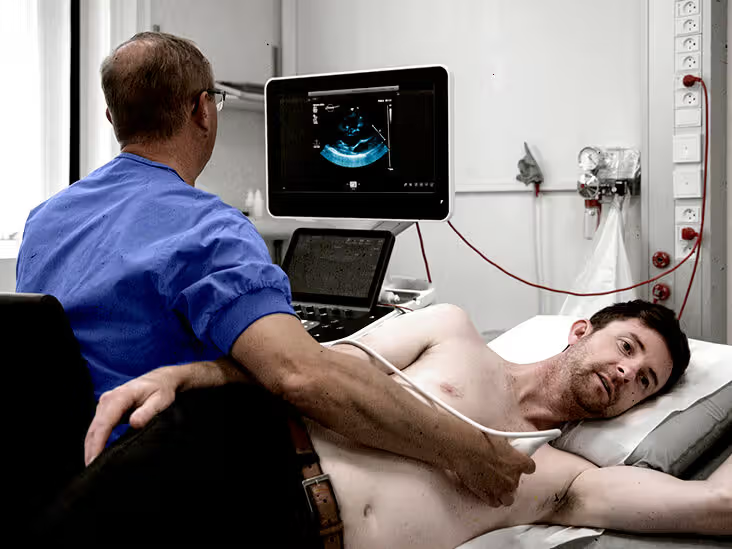Echo Test at Home in Bangalore: A Complete Guide
In today’s fast-paced world, convenience is key, especially when it comes to healthcare. Many people prefer getting medical tests done at home instead of visiting a diagnostic center. One such test is the echocardiography or echo test, which is crucial for diagnosing heart conditions. If you are looking for an echo test at home in Bangalore, this guide will help you understand its benefits, process, costs, and more.
What is an Echo Test?
An echocardiogram, commonly known as an echo test, is a non-invasive imaging procedure that uses ultrasound waves to create detailed images of the heart. It helps in assessing heart function, detecting abnormalities, and diagnosing various cardiac conditions.
Types of Echocardiography
There are different types of echo tests depending on the requirement:
- Transthoracic Echocardiogram (TTE): The most common type, performed externally by placing a probe on the chest.
- Transesophageal Echocardiogram (TEE): Uses a probe inserted into the esophagus for a closer look at the heart.
- Stress Echocardiogram: Conducted before and after stress (exercise or medication) to evaluate heart function under exertion.
- Doppler Echocardiogram: Measures blood flow and pressure within the heart.
- 3D Echocardiogram: Provides a three-dimensional view of the heart for detailed analysis.
Benefits of an Echo Test at Home
Opting for an echo test at home offers several advantages:
- Convenience: No need to travel; the test is conducted in the comfort of your home.
- Time-Saving: Avoid waiting times at clinics or hospitals.
- Safety: Reduces the risk of exposure to infections in medical facilities.
- Comfort: Ideal for elderly patients or individuals with mobility issues.
- Personalized Care: Home-based testing ensures a more focused and comfortable experience.
Who Should Consider an Echo Test at Home?
An echo test is recommended for individuals experiencing symptoms of heart disease or those with pre-existing heart conditions. You may need an echo test if you have:
- Shortness of breath
- Chest pain or discomfort
- Irregular heartbeats (arrhythmias)
- Swelling in the legs or feet (a sign of heart failure)
- History of heart attacks or strokes
- High blood pressure
Additionally, people undergoing regular cardiac monitoring or post-surgical heart patients may also benefit from home-based echo testing.
How is an Echo Test Performed at Home?
The procedure for an at-home echo test is similar to one conducted at a diagnostic center:
Step 1: Appointment Scheduling
- Contact a reputed diagnostic center that provides home-based echocardiography services.
- Choose a convenient date and time for the test.
Step 2: Technician Visit & Setup
- A certified technician arrives at your home with portable ultrasound equipment.
- The patient is asked to lie down in a comfortable position.
Step 3: Gel Application & Image Capture
- A gel is applied to the chest to help transmit ultrasound waves.
- The technician moves the transducer over the chest to capture real-time images of the heart.
Step 4: Completion & Report Generation
- The entire procedure takes about 30-60 minutes.
- Results are usually available within 24-48 hours.
Preparing for an Echo Test at Home
To ensure an accurate test, follow these simple preparation steps:
- Wear loose, comfortable clothing.
- Avoid applying lotions or oils to your chest area before the test.
- Stay relaxed and follow the technician’s instructions.
- If you are undergoing a stress echocardiogram, follow any fasting or medication guidelines provided by your doctor.
Cost of an Echo Test at Home
The cost of an at-home echo test varies based on factors such as location, type of echocardiogram, and the diagnostic center chosen. On average, home-based echo tests in Bangalore range from ₹2,500 to ₹5,000. Some insurance plans may cover the cost, so it’s advisable to check with your provider.
Choosing the Right Diagnostic Service for Home-Based Echo Testing
When selecting a diagnostic center for an at-home echo test, consider the following:
- Reputation & Experience: Check online reviews and ratings of the service provider.
- Certified Technicians: Ensure the test is conducted by qualified professionals.
- Advanced Equipment: Look for centers using the latest portable ultrasound technology.
- Turnaround Time: Choose services that provide prompt and accurate reports.
- Customer Support: Reliable post-test consultation and assistance are essential.
Conclusion
Getting an echo test at home in Bangalore is a convenient and reliable way to monitor heart health without the hassle of hospital visits. With the availability of professional home-based diagnostic services, you can ensure timely detection and management of cardiac conditions in a stress-free manner.
Frequently Asked Questions (FAQs)
1. What is the purpose of an echocardiogram?
An echocardiogram helps assess heart function, detect structural abnormalities, measure blood flow, and diagnose heart diseases.
2. Is an echocardiogram painful?
No, an echocardiogram is a non-invasive and painless procedure.
3. How long does an echocardiogram take?
A standard echocardiogram usually takes 30 to 60 minutes.
4. Can I eat before an echo test?
For a standard echocardiogram, you can eat normally. However, for a stress or transesophageal echocardiogram, fasting may be required.
5. Do I need a doctor’s prescription for an echo test?
While some diagnostic centers may allow self-booking, it is recommended to get a doctor’s prescription for accurate diagnosis and interpretation.
6. What conditions can an echocardiogram detect?
It can detect heart valve diseases, congenital heart defects, cardiomyopathy, pericarditis, and more.
7. Is an at-home echocardiogram as accurate as a hospital-based test?
Yes, home-based echocardiograms use advanced portable ultrasound machines, providing accuracy comparable to hospital tests.
8. Who performs the echo test at home?
A trained and certified sonographer or cardiology technician performs the test.
9. How soon will I receive my echocardiogram results?
Reports are usually available within 24-48 hours, depending on the diagnostic center.
10. Can children undergo an echocardiogram at home?
Yes, pediatric echocardiograms can be conducted at home for children suspected of heart conditions.

